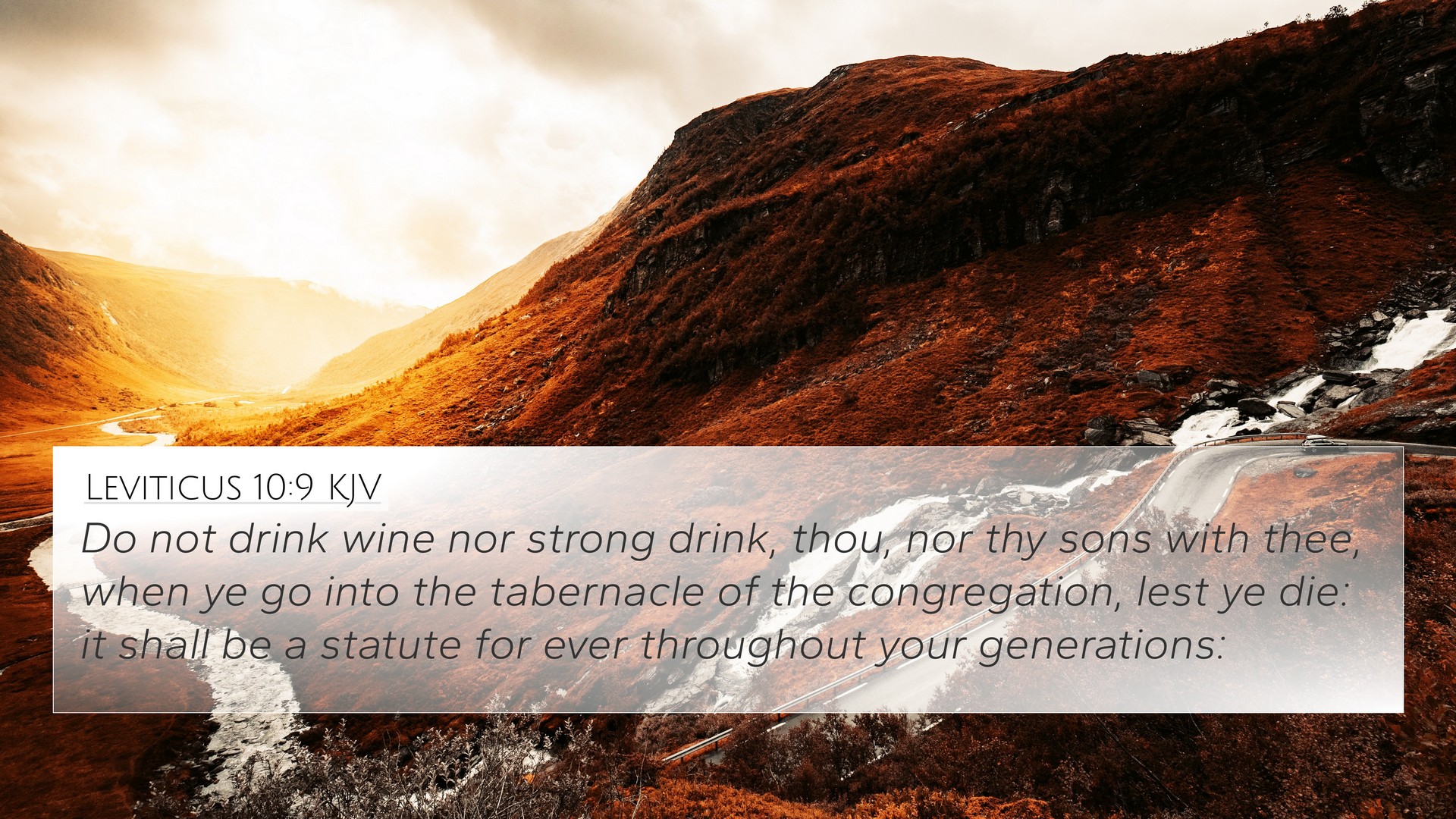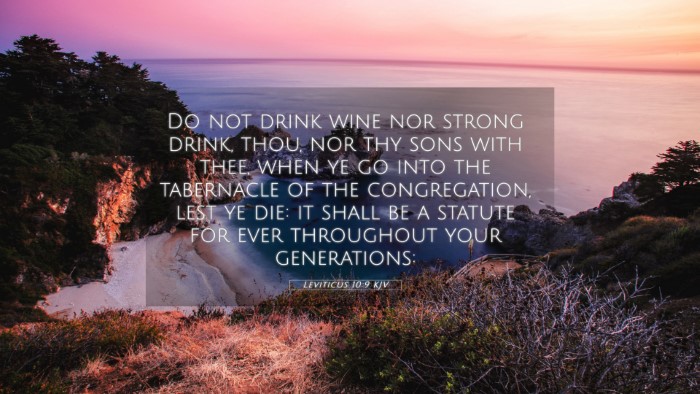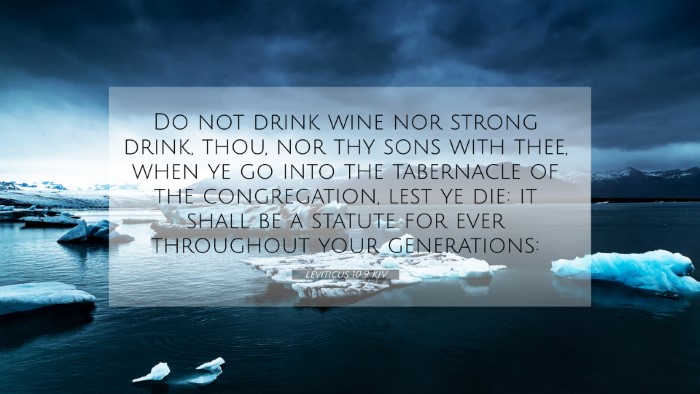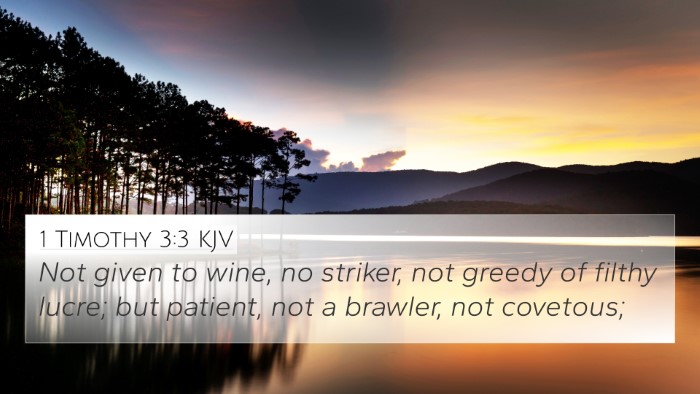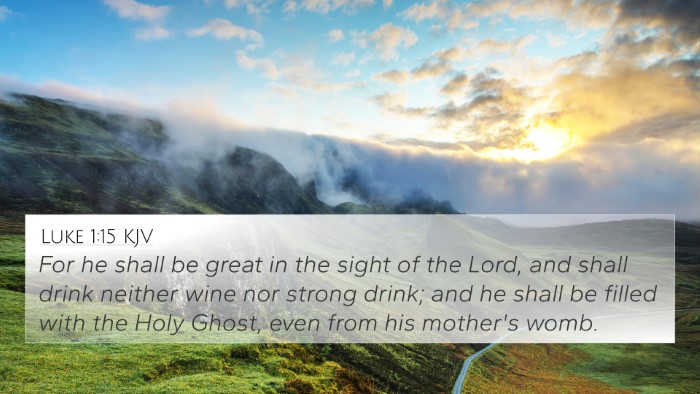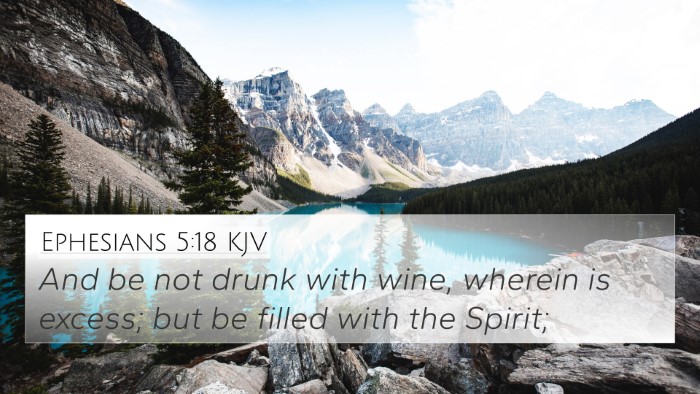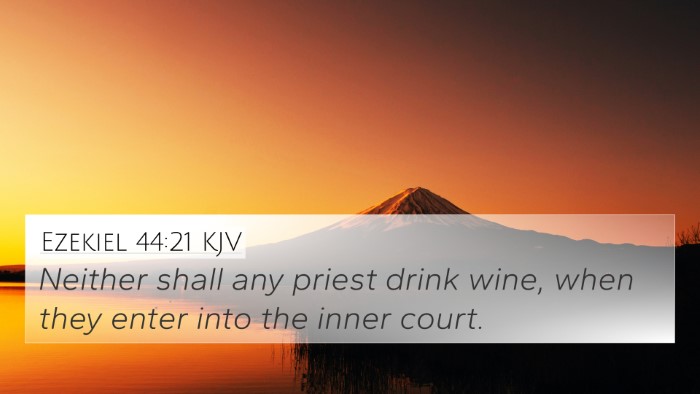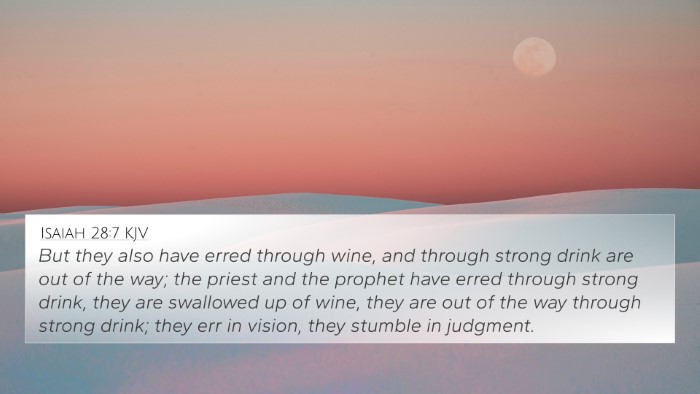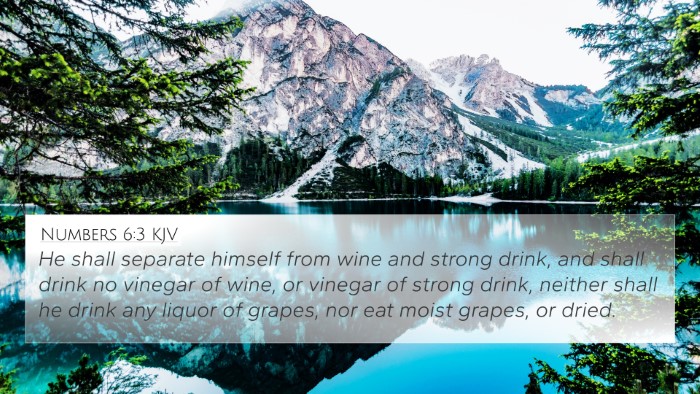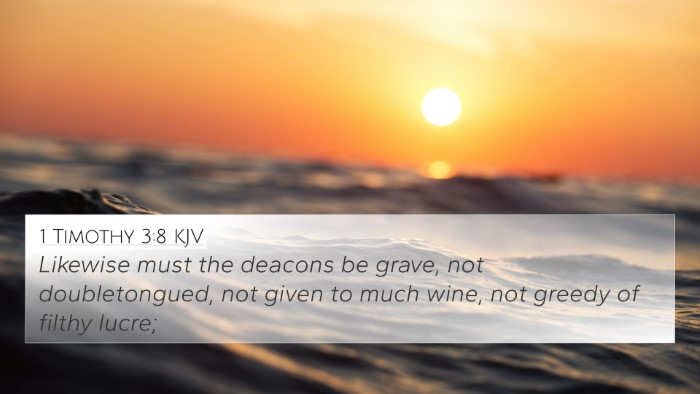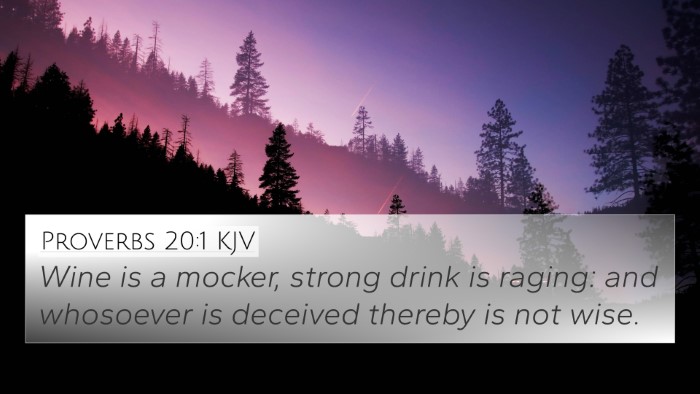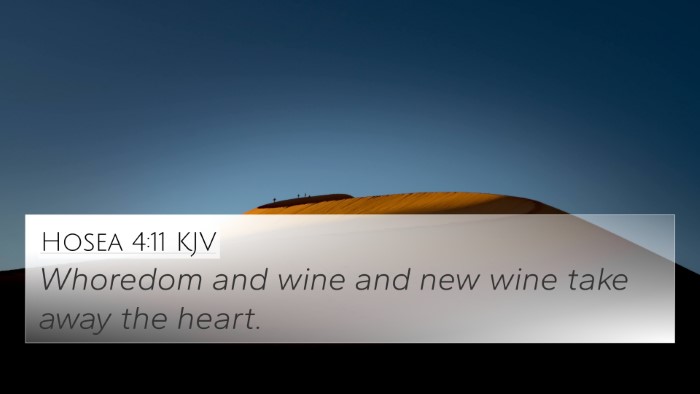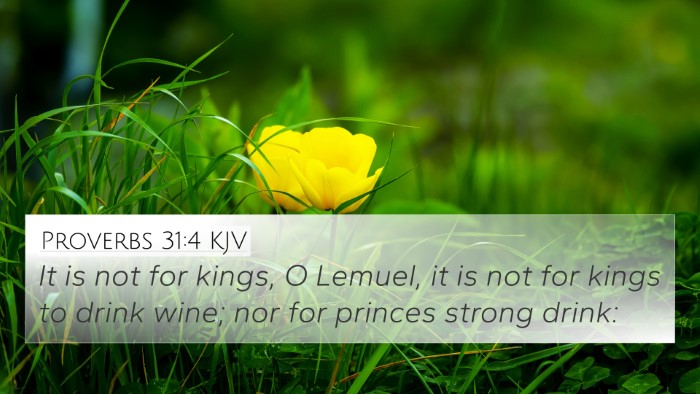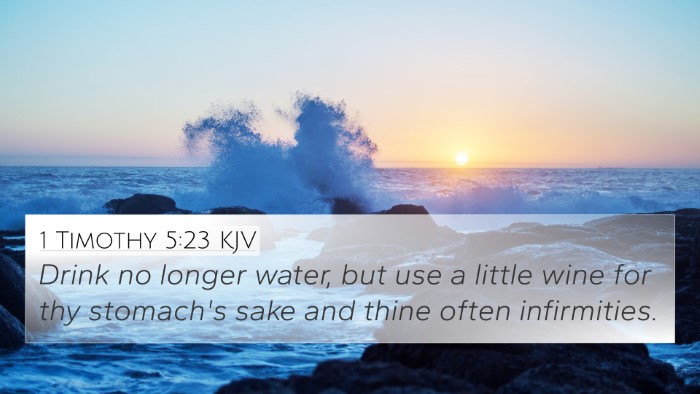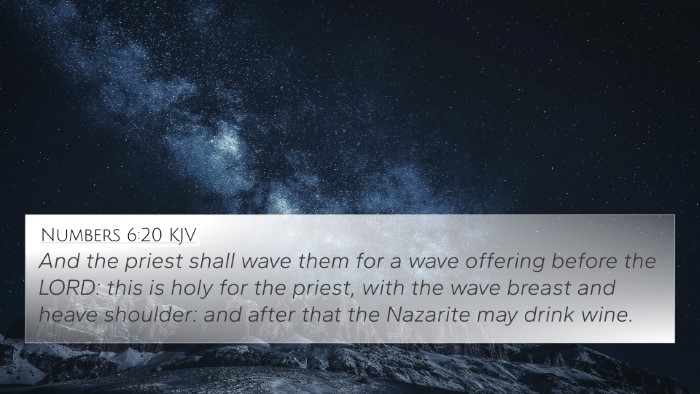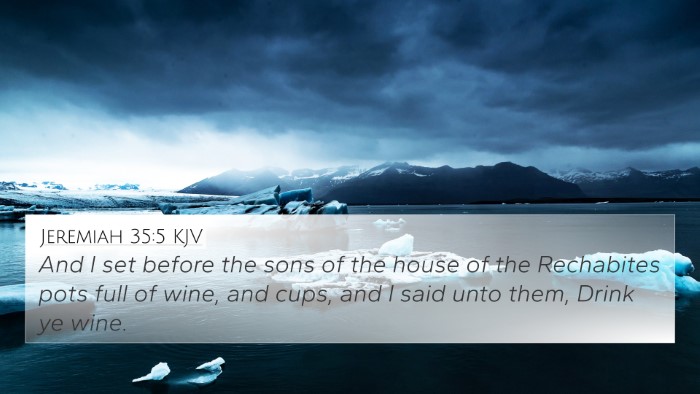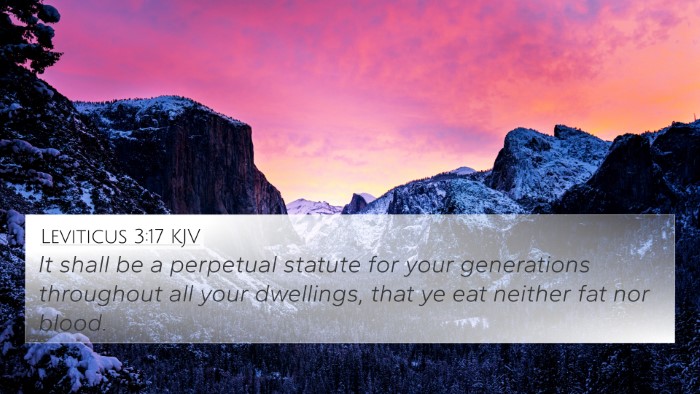Understanding Leviticus 10:9
This verse states: "Do not drink wine or strong drink, you, nor your sons with you, when you go into the tabernacle of the congregation, lest you die: it shall be a statute forever throughout your generations."
Overview of Leviticus 10:9
Leviticus 10:9 addresses the priests' conduct, explicitly prohibiting the consumption of fermented drinks during their service in the tabernacle. The magnitude of this command reflects the holiness required in serving God. The passage underscores the necessity for spiritual clarity, especially when performing sacred duties.
Commentary Insights
-
Matthew Henry:
Henry emphasizes the seriousness of the priestly office and the need for priests to maintain their spiritual integrity. This command serves as a vital reminder that divine service demands sobriety and alertness.
-
Albert Barnes:
Barnes notes that this prohibition was aimed at preventing any form of intoxication that could impair judgment, especially when making sacred offerings. The context of this command is a response to the sinful actions of Nadab and Abihu, underscoring the need for order and reverence in worship.
-
Adam Clarke:
Clarke expands on the implications of spiritual intoxication, reflecting on how it can lead to a disconnection from God’s commandments. He asserts that this is not just about physical intoxication but encompasses any distractions that could lead one away from focused worship.
Key Themes
The primary themes reflected in Leviticus 10:9 include:
- Holiness: The need for those in leadership to uphold a standard of holiness.
- Reverence in Worship: The importance of approaching God with sincerity and sobriety.
- Accountability: Leaders are accountable not only to God but also to the community they serve.
Cross-References
This verse relates to several crucial Biblical themes. Here are some cross-references:
- Exodus 30:9: Prohibits offerings made with wine, emphasizing purity in worship.
- Numbers 6:3: The Nazirite vow includes abstaining from wine, highlighting dedication to God.
- Isaiah 28:7: Warns of the consequences of intoxicants leading to errant judgment.
- Ephesians 5:18: In the New Testament, Paul warns against drunkenness, promoting being filled with the Spirit instead.
- Proverbs 20:1: Describes wine as a mocker and strong drink as raging, linking alcohol to folly.
- 1 Peter 2:9: Emphasizes the call to be a holy priesthood, parallel to the call of the Levitical priests.
- 1 Timothy 3:3: Counsel regarding the qualifications of church leaders against drunkenness.
The Importance of Contextual Analysis
Understanding Leviticus 10:9 through a thematic and contextual lens allows for a deeper appreciation of the scriptural teachings on worship and leadership. Engaging with cross-referencing Biblical texts enriches interpretation and promotes a holistic view of the Scriptures.
Conclusion
Leviticus 10:9 serves as a critical reminder of the standards expected from those leading in spiritual matters. The lessons drawn from this verse transcend the Old Testament, informing practices in Christian communities today. By linking this verse with others and understanding its emphasis on holiness and discernment, readers can develop a more robust theological framework.
Resources for Further Study
To delve deeper into the themes presented in Leviticus 10:9, consider utilizing tools for Bible cross-referencing such as:
- Bible concordance
- Bible reference resources
- Cross-reference Bible study techniques
